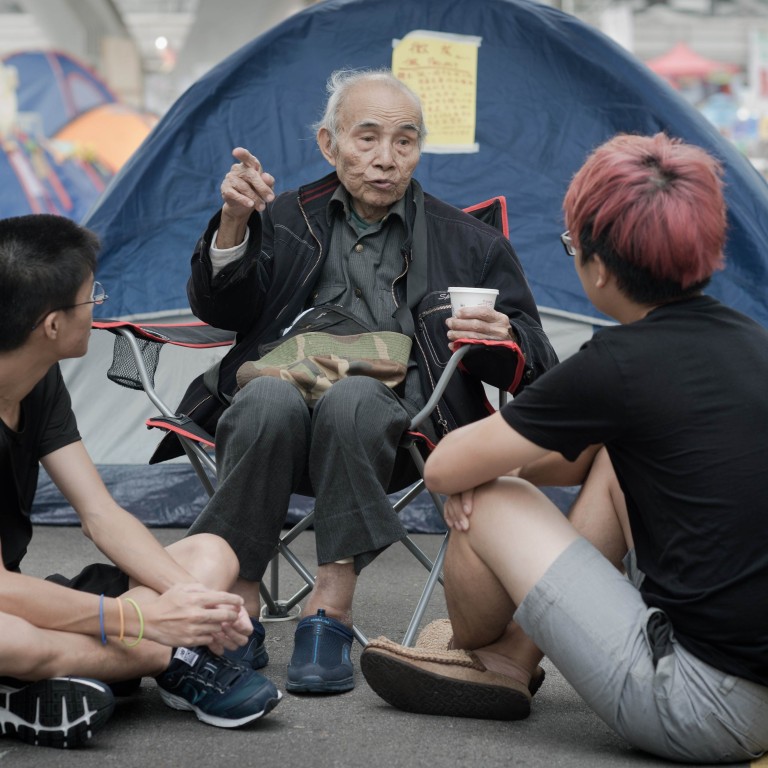
Let our children think, talk and argue over Occupy protests
Kelly Yang says the Occupy protest offers the chance of real-world learning at its best, not least because of its importance for Hong Kong
As the protests continue, with no end in sight, it's been a very interesting month for Hong Kong teachers. Occupy has galvanised students' interest in politics. I have led debate after debate, with rooms packed full of secondary students.
One said, "These [student protesters] are total hypocrites. They want democracy. Yet they refuse to abide by the rule of law. If they really care about Hong Kong and their future, they should go back to the classroom and prepare for their future like a real student." Another retorted, "But what's the point of preparing for the future when that future is not bright?"
As a teacher, arguments over democracy, rather than whether Miley Cyrus is still cool, make you feel excited, whatever your politics. This is real-world learning at its finest. No longer are debate motions simply vague, abstract arguments. No longer are essays concocted by teachers, and students are actually happy to write them.
As soon as Occupy began, I asked all my students whether their teachers had talked to them about Occupy. What was their take on it? What did the students think? To my surprise, many said they hadn't talked about it at school. Apparently, it was business as usual at many establishments.
READ MORE: To view all the latest Occupy Central stories click here
I understand the hesitation to talk about Occupy. It is such a heated topic; just how are we teachers supposed to discuss it without injecting our own views, even accidentally? And if we do that, are we unfairly imposing these views on students?
The result of this silence has not been apathy, but more interest from students, who want to know what is happening in their own city. Even five-year-olds wanted to know. One asked me: "Why can people sit in the middle of the street?"
I racked my brain to come up with ways to explain "right", "vote", and "leader" to him. When I finished, he nodded and started to walk away. Then, he stopped and asked, "But to sit on the street, isn't that … naughty?"
It is naughty. It's also complicated. And it's this complication that excites me as a teacher, because nothing makes for a better discussion.
A week ago, two students looked at me nervously throughout the entire lesson. They told me their school teacher had showed the class a column I had written on Occupy Central, in which I said that the movement may be hurting a lot of ordinary Hongkongers. Their teacher completely disagreed with what I wrote and spent the better half of the lesson trashing both me and the piece.
When I heard this, I was not angry. If anything, I was excited, because it meant teachers were at least talking about the issues. As teachers, it's our job to prepare students to think critically. This means understanding and analysing both sides. It means treating disagreement gracefully and thoughtfully, because in disagreement there may actually be wisdom. To get there, we, as teachers, must teach the lesson that matters for Hong Kong. How we teach this will shape the city's future.

